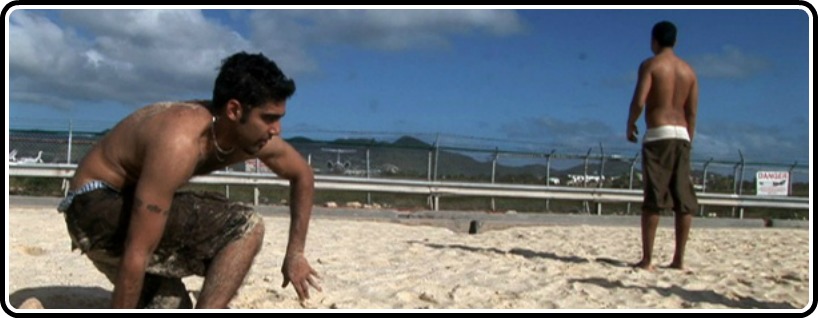When one begins to describe a film like the newly released documentary When I Walk, it is increasingly hard not to sound as if you were describing a film that is as manipulative or maudlin as it is genuinely moving and evocative. However, then one would be doing a dramatic disservice to a film as breathlessly made and uncompromisingly moving as Jason DaSilva’s new picture.
The documentary stars DaSilva and is as personal a documentary as one could imagine. Ostensibly a videotaped diary of his battle with multiple sclerosis (an autoimmune disease that focuses its attack on a person’s brain and spinal cord), that sees him go from a short documentary director who had the chance to travel the world shooting shorts that he was deeply passionate about (the film is all the more powerful for seeing him at his very happiest, behind the camera, for one of these) to a man unwilling to let this ever growing disease hinder his life, as it very much does throughout the span of the film.
Clocking in at 80 minutes in length, the film, at its very best, is a simply emotional piece of pure human cinema. DaSilva is at the top of his craft here, be it his unflinching and ever present camera or the various charming and melancholy animations found within the film, we see this filmmaker at his highest high (a thread is launched here finding DaSilva and partner Alice Cook trying to get pregnant, with the film’s emotional peak being the moment they do) and at his lowest lows (his continuing attempts to find treatments throughout the film and their lack of success are emotional body blows), all with the same amount of interest.
And yet, the film takes an entirely different turn once the aforementioned Cook arrives on screen. Their relationship is seen from the very beginning, with all the doubts that come with it. Cook is asked tough questions by the ever melancholy DaSilva, and while there is inherent hesitation throughout her various responses, they come off as brazenly human and without much of a filter one would find within this type of documentary. Their wedding is an absolutely breathtaking moment here, and the entire relationship feels unfiltered in a way that you just don’t see much in modern documentary cinema.
Beautifully lo-fi, aesthetically, the film doesn’t shy away from its small beginnings. With the film rarely becoming anything inherently aesthetically bewildering, the film relies almost entirely upon DaSilva as a presence and particularly his ability to find humor in the darkest of situations. As life affirming as it is oppressive at moments, there are little things like the escape he and his new bride make on their scooter adorned with “Just Married,” that hint at a film entirely all its own.
Overall, while the film may seem on its face to be a relatively manipulative documentary, viewers will walk out wanting to discuss the film for days to come. Poetically humanistic and emotionally resonant, When I Walk isn’t as aesthetically experimental as many of its 2013 documentary brethren, but very few pack the pure, real, emotional wallop as this breathtaking piece of documentary cinema.




![Bergman Island (The Criterion Collection) [Blu-ray]](https://criterioncast.com/wp-content/uploads/2022/11/bergman-island-the-criterion-collection-blu-ray-400x496.jpg)
![This Is Not a Burial, It’s a Resurrection (The Criterion Collection) [Blu-ray]](https://criterioncast.com/wp-content/uploads/2022/11/this-is-not-a-burial-its-a-resurrection-the-criterion-collection-blu-ray-400x496.jpg)
![Lars von Trier's Europe Trilogy (The Criterion Collection) [The Element of Crime/Epidemic/Europa] [Blu-ray]](https://criterioncast.com/wp-content/uploads/2022/11/lars-von-triers-europe-trilogy-the-criterion-collection-the-element-of-400x496.jpg)
![Imitation of Life (The Criterion Collection) [Blu-ray]](https://criterioncast.com/wp-content/uploads/2022/11/imitation-of-life-the-criterion-collection-blu-ray-400x496.jpg)
![The Adventures of Baron Munchausen (The Criterion Collection) [4K UHD]](https://criterioncast.com/wp-content/uploads/2022/11/the-adventures-of-baron-munchausen-the-criterion-collection-4k-uhd-400x496.jpg)
![Cooley High [Criterion Collection] [Blu-ray] [1975]](https://criterioncast.com/wp-content/uploads/2022/11/cooley-high-criterion-collection-blu-ray-1975-400x496.jpg)